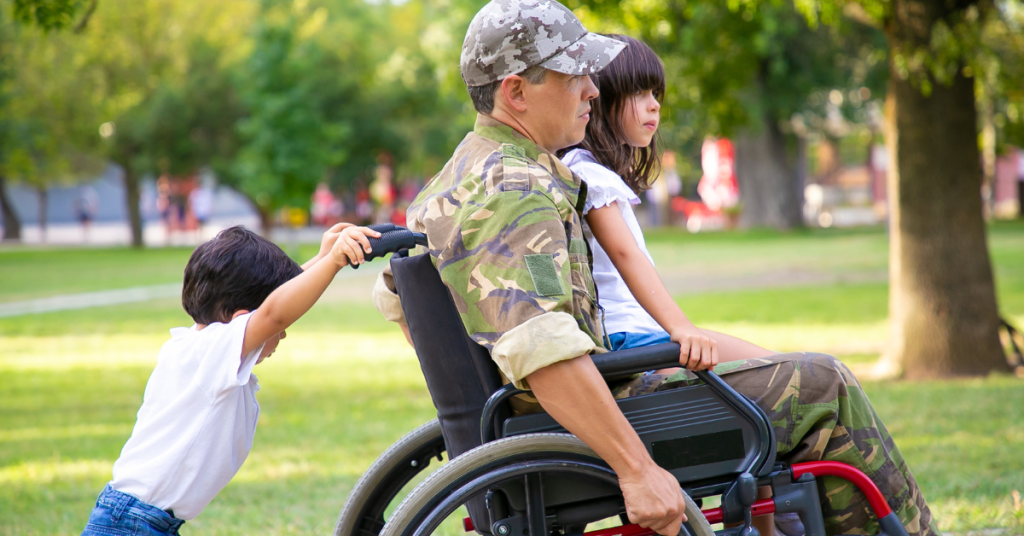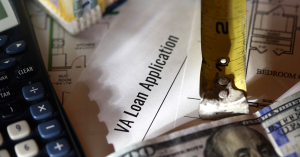For many, purchasing a home might feel like an overwhelming dream loaded with complex paperwork and financial stress, especially for the brave men and women who return home from service with unique, disability-related needs.
But let’s paint a different picture. A journey towards homeownership is characterized by understanding, compassion, and adaptation to cater explicitly to these outstanding individual requirements.
Crafted in honor of their immense sacrifice, VA home loans for disabled veterans challenge the traditional roadblocks of buying a home, empowering disabled veterans to secure a roof over their heads despite their physical hurdles or financial red tape. Based on my in-depth knowledge of disability loans, let’s dive into this diligent initiative that turns heroes’ dreams into homes.
What is a VA loan?
A VA loan program is a mortgage loan in the United States guaranteed by the United States Department of Veterans Affairs (VA). This program is designed to offer long-term financing to eligible American veterans, especially those who are disabled.
Disabled veterans may encounter unique challenges regarding homeownership, and VA aims to address these issues by offering favorable loan terms and conditions.
In addition, veterans who wish to have a second loan but have used their home loan benefits might still be eligible for a second tier VA loan. This will enable them to access two concurrent loans or secure a second home after paying off the initial one.
Why Are There Loans Specific for Disabled Veterans?
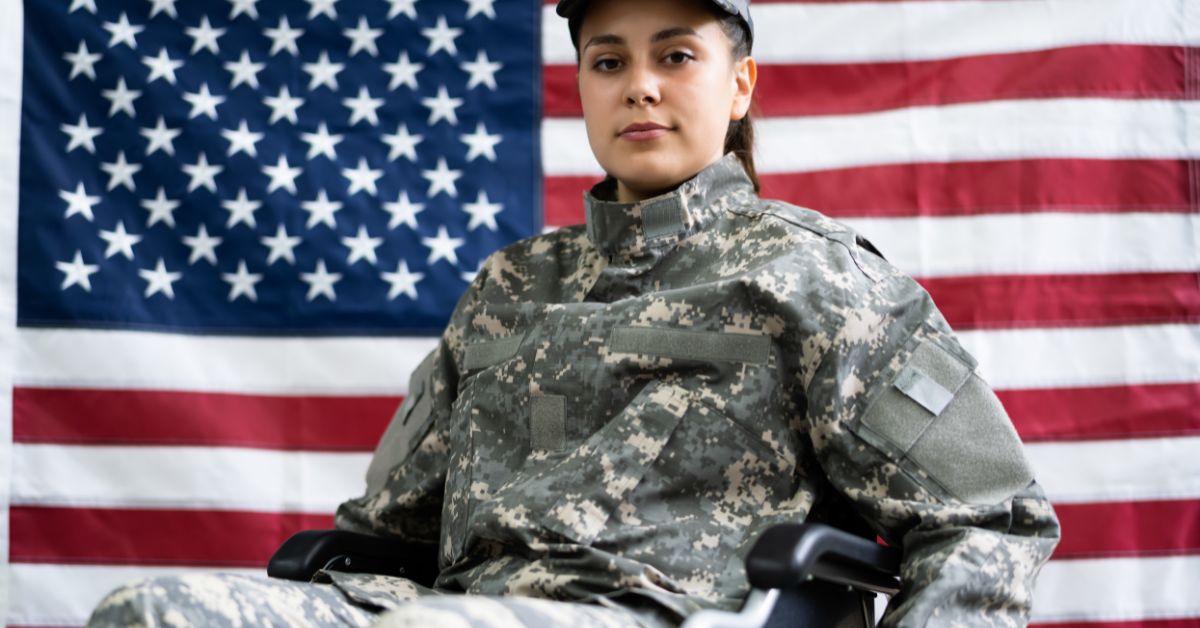
Loans specific for disabled veterans exist because these individuals may face additional financial and physical challenges. The cost of adapting a home to accommodate a disability can be high, and traditional loans may not offer the flexibility or affordability that a disabled veteran needs. Disabled veterans’ VA loans are designed with these unique needs in mind.
VA Loan Benefits for Disabled Veterans
VA home loans have several benefits, making them an attractive option for disabled veterans. Here are some valuable benefits for veterans with disabilities.
VA Funding Fee Exemption
One of the primary benefits is the exemption from VA funding fees. Veterans using the VA guaranty program must pay a funding fee. This fee helps to reduce the program’s cost to taxpayers since there is no requirement for a down payment or continued private mortgage insurance. Here’s a table depicting the 2024 VA funding fee:
| Type of Veteran | Down Payment | First-Time Use | Second Time Use |
|---|---|---|---|
| Regular Military | Less than 5% | 2.15% | 3.30% |
| Regular Military | 5% or more (up to 10%) | 1.50% | 1.50% |
| Regular Military | 10% or more | 1.25% | 1.25% |
| Reserves/National Guard | Less than 5% | 2.40% | 3.30% |
| Reserves/National Guard | 5% or more (up to 10%) | 1.75% | 1.75% |
| Reserves/National Guard | 10% or more | 1.50% | 1.50% |
For disabled veterans, these funding fees are typically waived, which can result in thousands of dollars in savings over the life of the loan.
Better Mortgage Terms Despite Bad Credit
Another benefit is that the loans offer more favorable terms for veterans, even those with bad credit. Lenders typically look at credit history when determining loan eligibility, but with VA mortgages, the focus is more on the applicant’s income and ability to manage finances effectively.
Access to Special Tax Credits
Disabled veterans can also access special tax benefits, such as the Disabled Veterans Property Tax Exemptions and credits. The rules governing the relief vary based on the state and disability rating and can significantly lower a veteran’s property tax, making homeownership more affordable.
Specially Adapted Housing (SAH) Grant
The Specially Adapted Housing (SAH) grant is designed to help veterans with certain severe service-connected disabilities live independently in a barrier-free environment. SAH grants can be used in various ways, including:
- Constructing an adapted home on land to be acquired
- Building a home on land already owned
- Remodeling an existing home
- Paying down the unpaid principal mortgage balance of an adapted home acquired without the assistance of a VA grant.
Special Housing Adaptation (SHA) Grant
The Special Housing Adaptation (SHA) grant helps veterans with specific service-connected disabilities adapt or purchase a home to accommodate their disability. This can include adaptations like wheelchair ramps, widening doors, or installing railings.
Qualifying for a VA Loan for Disabled Veterans
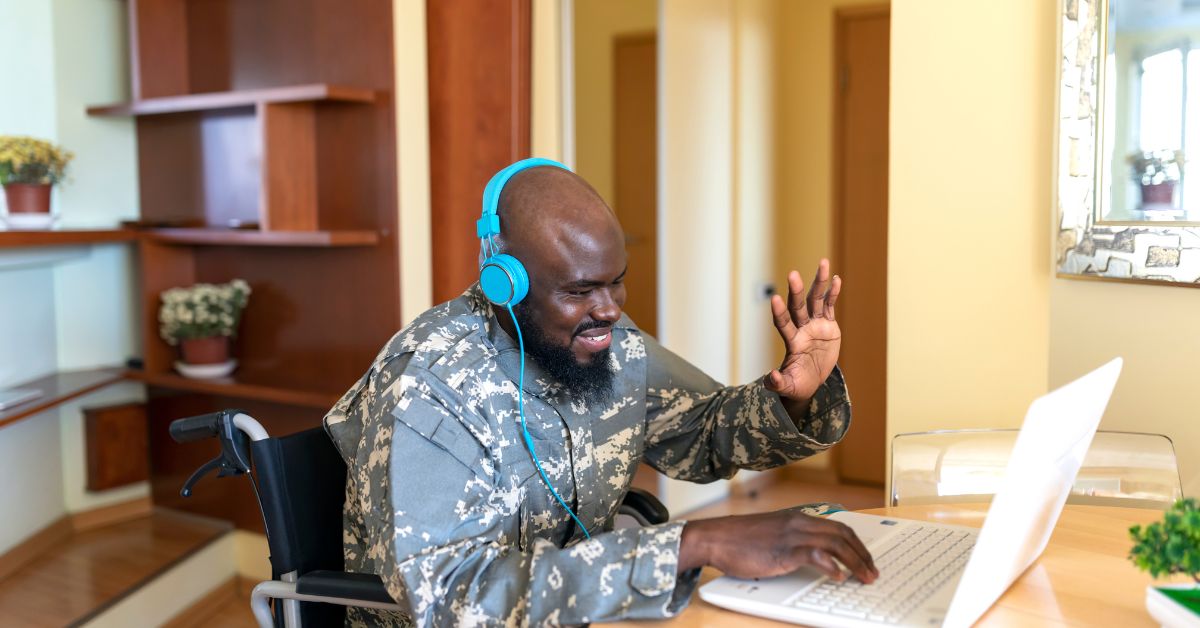
VA loans offer valuable financing options for esteemed military personnel. However, applicants must meet specific service VA loan eligibility criteria to qualify for a loan. Here’s a more detailed look at these requirements:
Service Eligibility Criteria
- Active Duty Service: Veterans who have served 90 consecutive days of active service during wartime, or 181 days of active service during peacetime, can apply.
- Reserves or National Guard Service: Reserves or National Guard members are eligible for a VA home loan after 6 years of service.
- Discharged for Service-Connected Disabilities: If you were discharged from service due to a service-connected disability, you might qualify if you don’t meet the minimum service requirement.
In some cases, such as when a veteran has passed away in service or from a service-connected disability, a surviving spouse can get a VA loan if they meet the requirements.
Credit and Income Requirements
- Credit Score: While the VA doesn’t set a minimum credit score, many lenders have minimum credit score requirements. It’s essential to check and understand their specific requirements.
- Debt-to-Income Ratio: Your debt-to-income ratio – the percentage of your monthly gross income that goes towards paying debts, is an important consideration. A lower ratio is preferable as it indicates less risk.
- Residual Income: The VA also requires borrowers to have a certain amount of income left over each month after all major expenses are paid. This is known as residual income, and it varies based on the size of your family and where you live.
- Stable Income: Lenders typically want a stable, reliable income that will likely continue. Proof of employment or a steady source of income such as a pension or social security benefits can fulfill this requirement.
- Loan Purpose: The loan must be for an eligible purpose, according to the VA, which includes buying, building, or improving a home, refinancing an existing home loan, or installing energy-efficient improvements.
Applying for a VA Home Loan as a Disabled Veteran
Veterans with qualifying disabilities must follow a process involving several steps. Here’s a step-by-step guide to help you navigate the process:
Step 1: Obtain Your Certificate of Eligibility (COE)
The first step is to obtain your Certificate of Eligibility (COE). This certificate proves that you’re eligible for a VA-backed loan. You can apply for your COE through the eBenefits portal on the VA website or by mail.
Step 2: Choose a Lender and Get Pre-Approved for a Loan
Next, you’ll need to choose a lender. Shopping around and comparing rates from different options is essential for the best deal. Once you’ve decided, you’ll need to get pre-approved for a loan after verification of your income and assets.
Step 3: Choose Your Home and Make an Offer
Once pre-approved, you can start looking for a home within your budget. When you find a home you like, you’ll make an offer. If the seller accepts your offer, you’ll move on to the next step.
Step 4: Go Through Underwriting
During underwriting, the lender will verify all the information you provided during pre-approval. They’ll also appraise the home to ensure it’s worth borrowing.
Step 5: Close on the Home
If everything goes well during underwriting, you’ll move on to closing. During closing, you’ll sign all the necessary paperwork, pay any remaining costs, and receive the keys to your new home.
Remember, while this process can seem daunting, resources are available to help you. The VA and various veteran service organizations, such as Military Housing Assistance Fund (MHAF) offer assistance to veterans navigating the home-buying process.
Challenges and Solutions to Credit Issues in VA Home Loan
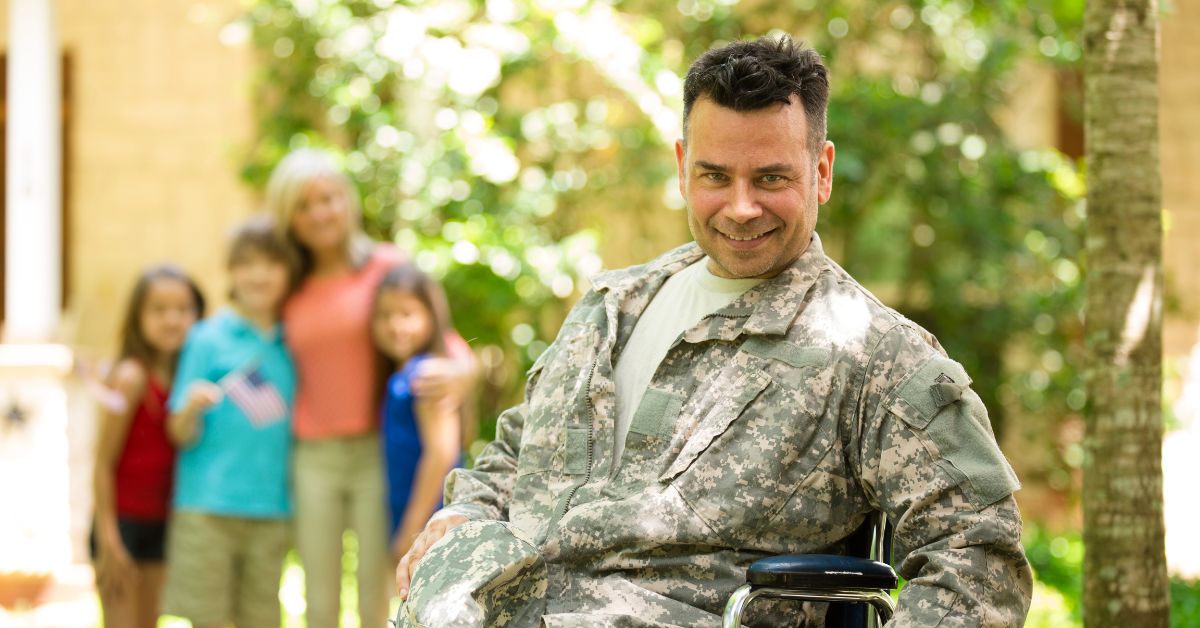
As mentioned, VA loans offer better terms even with poor credit ratings. To improve your chances of approval, start by checking your credit report for errors and disputing any inaccuracies. You should also work on paying down debt and making all payments on time. It may also be beneficial to save for a larger down payment, as this can make you more attractive to lenders.
Remember, even if you’ve faced financial difficulties in the past, like bankruptcy, it’s still possible to secure a VA loan after bankruptcy. However, you need to meet the lender’s credit and income criteria. It’s crucial to opt for a lender with VA loan expertise to navigate the process smoothly.
Financial Freedom with Disabled Veterans VA loans
VA disabled veterans loans offer a path to homeownership tailored to these veterans’ unique needs and challenges. With benefits like funding fee exemptions and access to notable tax credits, these loans can make homeownership more accessible and affordable. Whether you’re a disabled veteran looking to buy a home or a spouse seeking a VA Loan, I can confidently say that the VA has resources to help.
Frequently Asked Questions About VA Home Loans for Disabled Veterans
Can a disabled veteran get a VA loan?
Yes, a disabled veteran can get a VA loan. In fact, the loans come with unique benefits for disabled veterans, such as exemption from the VA funding fee and access to special tax credits. These benefits make homeownership more affordable for disabled veterans.
Can I buy a house if my only income is VA disability?
You can buy a house if your only income is VA disability. Lenders consider VA disability compensation as adequate income, which can be used to meet the disability income requirements. However, they will also look at other factors, such as your credit score and debt-to-income ratio, to determine your eligibility for a VA home loan.
How much does the VA give for home loans?
The VA doesn’t set the maximum loan amount an eligible veteran can borrow using a VA loan. However, there are limits on the amount of liability the VA can assume, which usually affects the amount of money an institution will lend you. The loan limits are the amount a qualified Veteran with full entitlement can borrow without making a down payment. These loan limits vary by county since the value of a house depends in part on its location.


